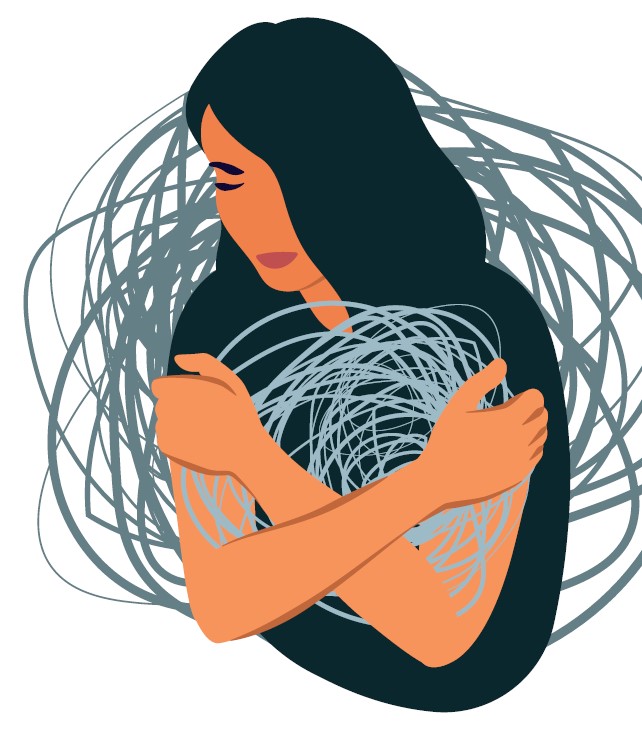This article supports the theme for March of ‘Stepping into Spring’ on the Care first Wellbeing Calendar for 2023. As human-beings, there are lots of attributes that we share due to our biology, however it is important to be aware that each person is unique. As the saying goes, everyone is fighting their own battles and will have experienced their own trauma. This article outlines the ways in which trauma can affect us with the intention to raise awareness.
Everyone is living their own life
A major difference between each person is the life that they currently live and the past
experiences that they have gone through. Many psychologists have spoken about how
past experiences can affect your life today. The experiences we are having today were
likely shaped by the past events you have been through. Events in your childhood or
early adulthood have shaped the way you think, act, and interact with people close to
you. Unresolved traumas of the past can affect us now. Past and present issues like
losing loved ones, abuse and violence may affect your family now and may impact
on how you are doing now. For example, sometimes when we have our own children
it can remind us of some of the really tough times we went through as children.
Many scholars believe our experiences do shape who we are and that the memories of
those experiences are equally as important. A seemingly unimportant experience may
simply change how you feel one day which can cause a chain reaction of how you act a
certain day, and how you act that day could affect your life as a whole.
From the surface, we are unable to identify the past trauma or experiences of another
person without that information being shared.
Beliefs and opinions
In our various roles, our beliefs, values and attitudes are constantly interacting
with those of our peers, friends, family or teachers. We seem to instinctively ‘like’ the
individuals who share our core values and beliefs. Harmonising our value systems is
what makes a relationship successful, be it personal, educational or professional.
Sometimes your attitudes and beliefs could lead you to assume things about people
that are not right or fair, due to their beliefs differing from your own. It is important that
you realise this and develop self-awareness so that you can learn to check that this does
not happen. You should take the time to learn about and understand the different attitudes
and beliefs of others so that you can work with individuals in a way that takes these
into account.
Mental Health
In a new survey by Rethink, the results found that of over 500 people severely affected by
mental illness, an overwhelming majority of 88% said that discrimination towards
people severely affected by mental illness is widespread in England.
Levels of awareness about common mental health problems have improved over the last
few years, which is good news. But some people are living with severe mental illness,
which is not always apparent on the surface. In fact, 1 in 4 people will experience mental
health issues each year and 70-75% of those suffering with mental health issues receive
no treatment at all.
It is important to always consider the possible challenges and experiences of those
around you.
Although as humans, we may all share similar attributes biologically and physically,
the experiences that are exposed to can differ completely.
The effects of trauma
Trauma can impact each individual differently and it is important to always be
aware of how your behaviour can affect others. These are some common effects of
trauma that you might recognise:
Flashbacks – reliving aspects of a traumatic event or feeling as if it is happening now,
which can happen whether or not you remember specific details of it.
Panic attacks – a type of fear response. They’re an exaggeration of your body’s
response to danger, stress or excitement.
Dissociation – one way your mind copes with overwhelming stress. You might feel numb, spaced out, detached from your body or as though the world around you is unreal.
Hyperarousal – feeling very anxious, on edge and unable to relax. You might be constantly looking out for threats or danger.
Sleep problems – you might find it hard to fall or stay asleep, feel unsafe at night, or feel
anxious or afraid of having nightmares.
Low self-esteem – trauma can affect the way you value and perceive yourself. To find out more, see our information on self-esteem.
Grief – experiencing a loss can be traumatic, including someone dying but also other
types of loss. Many people experience grief as a result of how trauma has changed their
lives. You might feel that trauma has caused you to miss out on some things in life, which
can also lead to feelings of loss.
Self-harm – hurting yourself as a way of trying to cope. This could include harming
parts of your body that were attacked or injured during the trauma.
Suicidal feelings – including being preoccupied by thoughts of ending your life,
thinking about methods of suicide or making plans to take your own life.
Alcohol and substance misuse – a way you might try to cope with difficult emotions
or memories.
Visit: www.carefirst-lifestyle.co.uk to view our articles on health and well-being, or call 0808 168 2143 for in the moment support.

